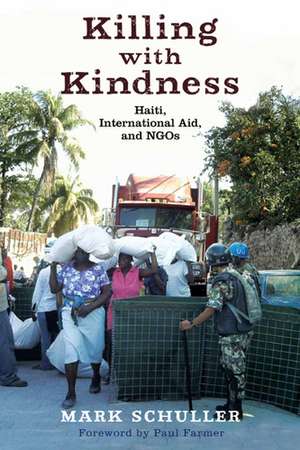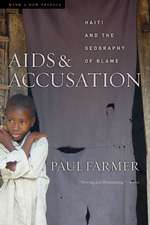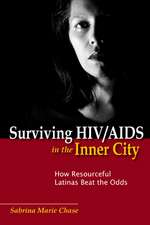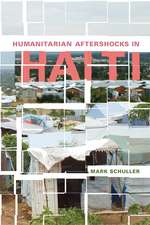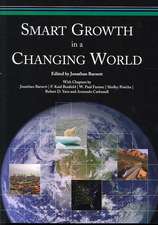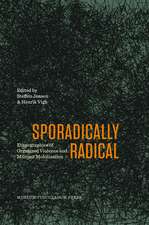Killing with Kindness: Haiti, International Aid, and NGOs
Autor Mark Schuller Cuvânt înainte de Paul Farmeren Limba Engleză Paperback – 24 sep 2012
Winner of the 2015 Margaret Mead Award from the American Anthropological Association and the Society for Applied Anthropology
After Haiti’s 2010 earthquake, over half of U.S. households donated to thousands of nongovernmental organizations (NGOs) in that country. Yet we continue to hear stories of misery from Haiti. Why have NGOs failed at their mission?
Set in Haiti during the 2004 coup and aftermath and enhanced by research conducted after the 2010 earthquake, Killing with Kindness analyzes the impact of official development aid on recipient NGOs and their relationships with local communities. Written like a detective story, the book offers rich ethnographic comparisons of two Haitian women’s NGOs working in HIV/AIDS prevention, one with public funding (including USAID), the other with private European NGO partners. Mark Schuller looks at participation and autonomy, analyzing donor policies that inhibit these goals. He focuses on NGOs’ roles as intermediaries in “gluing” the contemporary world system together and shows how power works within the aid system as these intermediaries impose interpretations of unclear mandates down the chain—a process Schuller calls “trickle-down imperialism.”
After Haiti’s 2010 earthquake, over half of U.S. households donated to thousands of nongovernmental organizations (NGOs) in that country. Yet we continue to hear stories of misery from Haiti. Why have NGOs failed at their mission?
Set in Haiti during the 2004 coup and aftermath and enhanced by research conducted after the 2010 earthquake, Killing with Kindness analyzes the impact of official development aid on recipient NGOs and their relationships with local communities. Written like a detective story, the book offers rich ethnographic comparisons of two Haitian women’s NGOs working in HIV/AIDS prevention, one with public funding (including USAID), the other with private European NGO partners. Mark Schuller looks at participation and autonomy, analyzing donor policies that inhibit these goals. He focuses on NGOs’ roles as intermediaries in “gluing” the contemporary world system together and shows how power works within the aid system as these intermediaries impose interpretations of unclear mandates down the chain—a process Schuller calls “trickle-down imperialism.”
Toate formatele și edițiile
| Toate formatele și edițiile | Preț | Express |
|---|---|---|
| Paperback (1) | 308.25 lei 6-8 săpt. | |
| Rutgers University Press – 24 sep 2012 | 308.25 lei 6-8 săpt. | |
| Hardback (1) | 827.70 lei 6-8 săpt. | |
| Rutgers University Press – 24 sep 2012 | 827.70 lei 6-8 săpt. |
Preț: 308.25 lei
Nou
Puncte Express: 462
Preț estimativ în valută:
58.99€ • 62.03$ • 48.74£
58.99€ • 62.03$ • 48.74£
Carte tipărită la comandă
Livrare economică 16-30 aprilie
Preluare comenzi: 021 569.72.76
Specificații
ISBN-13: 9780813553634
ISBN-10: 0813553636
Pagini: 256
Ilustrații: 5 photographs, 3 figures
Dimensiuni: 152 x 229 x 18 mm
Greutate: 0.38 kg
Ediția:None
Editura: Rutgers University Press
Colecția Rutgers University Press
ISBN-10: 0813553636
Pagini: 256
Ilustrații: 5 photographs, 3 figures
Dimensiuni: 152 x 229 x 18 mm
Greutate: 0.38 kg
Ediția:None
Editura: Rutgers University Press
Colecția Rutgers University Press
Notă biografică
MARK SCHULLER is an assistant professor of anthropology and NGO Leadership Development at Northern Illinois University. A writer for Huffington Post, he is the coeditor of four books, including Tectonic Shifts: Haiti since the Earthquake, and codirector of the documentary film Poto Mitan:Haitian Women, Pillars of the Global Economy.
Cuprins
List of Illustrations and Tables
Foreword by Paul Farmer
Acknowledgments
List of Abbreviations
Introduction: Doing Research during a Coup
1. Violence and Venereal Disease: Structural Violence, Gender, and HIV/AIDS
2. "That's Not Participation!": Relationships from "Below"
3. All in the Family: Relationships "Inside"
4. "We Are Prisoners!": Relationships from "Above"
5. Tectonic Shifts and the Political Tsunami: USAID and the Disaster of Haiti
Conclusion: Killing with Kindness?
Afterword: Some Policy Solutions
Notes
Glossary
References
Index
Foreword by Paul Farmer
Acknowledgments
List of Abbreviations
Introduction: Doing Research during a Coup
1. Violence and Venereal Disease: Structural Violence, Gender, and HIV/AIDS
2. "That's Not Participation!": Relationships from "Below"
3. All in the Family: Relationships "Inside"
4. "We Are Prisoners!": Relationships from "Above"
5. Tectonic Shifts and the Political Tsunami: USAID and the Disaster of Haiti
Conclusion: Killing with Kindness?
Afterword: Some Policy Solutions
Notes
Glossary
References
Index
Recenzii
"Mark Schuller's ethnography of pre- and post-earthquake disaster Haiti is profoundly riveting, poignant, and courageous. It offers a timely no-holds-barred critique and theoretically nuanced analysis of neoliberal NGO-ization and humanitarian aid. The book also provides an inspiring vision and thougtful recommendations for remedying the problems of 'trickle down imperialism.' This is an important contribution that convincingly explains why we should care about what's happening in Haiti and the troubling implications for elsewhere—including right here in the USA."
"Schuller's analysis of two NGOs is a singular contribution to our understanding of such organizations in underdeveloped countries."
"Mark Schuller provides something that has been sorely lacking from this story—an ethnographic account of nongovernmental politics in Haiti, a country many now dub 'the Republic of NGOs.'"
"Killing with Kindness offers both engaging ethnographic examples and extensive analysis of the complex network of governmental and nongovernmental institutions through which Haiti and Haitians are ruled.
Descriere
Set in Haiti following the 2004 coup and enhanced by research carried out after the 2010 earthquake, Killing with Kindness analyzes the impact of official development aid on recipient non-governmental organizations (NGOs) and their relationships with local communities. It offers rich ethnographic comparisons of two Haitian women’s NGOs working in HIV/AIDS prevention and examines participation and autonomy as well as donor policies that inhibit these goals.
